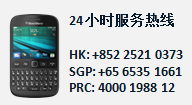Ukraine

Problems with the Discharge of Bagged Rice - Ukrainian Ports
There have been several cases where ships have faced difficulties discharging cargoes of bagged rice in Ukrainian ports due to the cargo being allegedly of an un-sound condition.
The Ukrainian port's State Sanitary Authority (SSA) board ships immediately on arrival to inspect the apparent condition of the cargo onboard. If mould is found to be present even only on the cargo packing the SSA will prohibit discharge of all cargo from the holds where the mouldy bags were found. The position held by the SSA in these circumstances is a tough one and it is difficult to negotiate with them and the cargo receivers. The cargo receivers will reject the cargo claiming it does not correspond to the clean bills of lading on the grounds of the SSA's findings. Occasionally mould may be apparent only on the outside of the bags, but in many cases the rice adjoining the material of the bag is also affected. It should be stressed that it makes no difference to the SSA where the mould was found or the possibility of segregating sound from the damaged bags as further discharging of sound bags is often forbidden.
This problem concerns mainly ships arriving from Chinese load ports where the cargo is occasionally packed in single woven polypropylene bags (not double bags) and is stored (prior to loading) in stacks in an open area covered only by tarpaulin. As a consequence some bags become wetted/collect moisture prior to and during loading operations. During a long passage from China to the Black Sea stowage of the cargo inside the holds i.e. without sufficient (vertical and horizontal) channel ventilation will also add to the development of mould.





